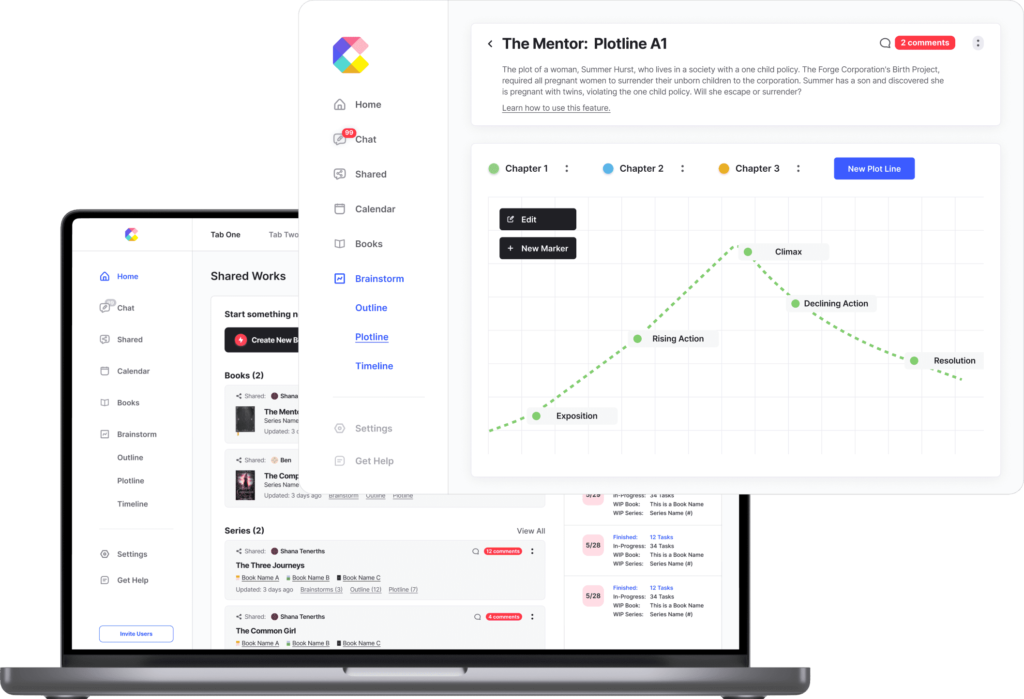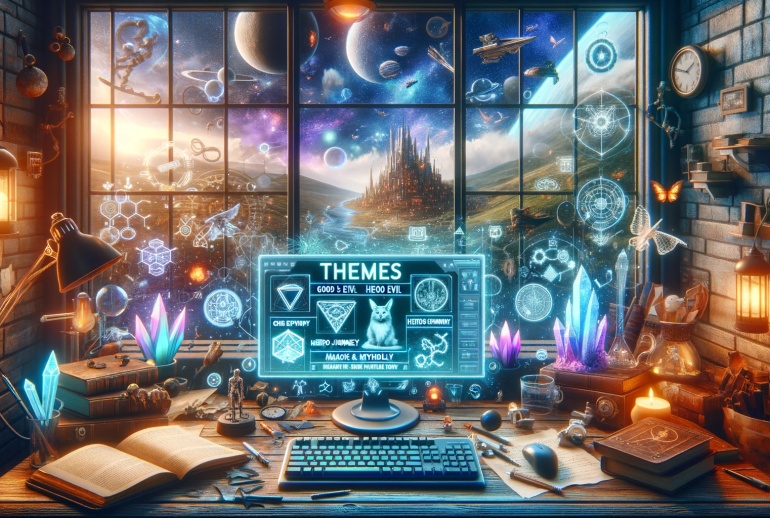Start by Brainstorming and Developing a Clear Idea for Your Novel
Every great novel begins with a spark of inspiration, a story idea that sets the stage for an epic journey. Whether you’re a seasoned writer or an aspiring author, the process of defining your story idea is the crucial first step toward creating a compelling narrative that captivates readers. In this article, we will explore the significance of defining your story idea, the methods of brainstorming, and the techniques for developing a clear and engaging concept for your novel.
The Importance of a Strong Story Idea
Before you dive into the intricate details of plot, characters, and settings, you must have a solid foundation—a central concept or theme that serves as the heart of your novel. Here’s why a strong story idea is essential:
-
Guiding Light: Your story idea acts as a guiding light throughout the writing process. It provides direction and purpose, helping you stay focused on the core message or theme you want to convey.
-
Reader Engagement: A captivating story idea piques the curiosity of your readers. It’s the hook that draws them in, making them eager to explore the world you’ve created and the characters who inhabit it.
-
Motivation: Having a compelling story idea can be a powerful motivator. When you’re excited about your concept, you’re more likely to stay committed to your writing project and see it through to completion.
-
Clear Vision: A well-defined story idea gives you a clear vision of your novel’s direction. It helps you make decisions about plot twists, character arcs, and thematic elements that align with your central concept.
Brainstorming: The Creative Catalyst
Brainstorming is the creative process of generating ideas, often in a spontaneous and free-flowing manner. When it comes to defining your story idea, brainstorming is your best friend. Here are some effective brainstorming techniques to kickstart your imagination:
1. Free Writing:
Free writing is a technique where you set a timer for a specific duration (e.g., 10-15 minutes) and write whatever comes to mind without pausing or editing. This unstructured approach can lead to unexpected and exciting story ideas. Begin with a prompt or a simple question related to your interests or themes you’d like to explore in your novel.
For example, if you’re interested in exploring the theme of identity, you might start with a prompt like, “What if someone woke up one day with no memory of who they are?”
2. Mind Mapping:
Mind mapping is a visual brainstorming technique that involves creating a diagram of interconnected ideas. Start with a central concept or word related to your novel idea and branch out with associations, themes, and subplots. This method helps you explore different facets of your story idea and identify potential directions to take.
3. Reverse Engineering:
Reverse engineering involves starting with a desired outcome and working backward to generate ideas. Begin by envisioning the emotional impact or takeaway message you want your readers to experience. Then, consider the elements that could create such an impact and build your story idea around those elements.
4. Collaborative Brainstorming:
Collaborative brainstorming involves discussing your novel idea with others. Share your thoughts and concepts with fellow writers, friends, or writing groups. Their perspectives and feedback can provide fresh insights and spark new ideas you may not have considered on your own.
Developing Your Story Idea
Once you’ve generated a pool of potential ideas through brainstorming, the next step is to refine and develop them into a clear, compelling story concept. Here’s how you can do that:
1. Theme Exploration:
Begin by exploring the themes you want to explore in your novel. What ideas or concepts resonate with you? What messages do you want to convey to your readers? Consider themes like love, loss, identity, redemption, or the human condition. Your chosen theme will form the core of your story idea.
2. Character Exploration:
Think about the characters who will inhabit your novel. Who are they, and what motivates them? How will they evolve throughout the story? Your characters should be closely connected to your story idea, and their arcs should align with the central theme you’ve chosen.
3. Conflict and Plot:
Next, consider the conflicts and plot elements that will drive your narrative. How will your characters’ goals and obstacles relate to your story idea? Plot points and events should be designed to explore and emphasize the themes you’ve selected.
4. Setting and World-Building:
The setting of your novel should complement and enhance your story idea. Whether it’s a vividly described real-world location or an entirely fictional realm, the world you create should serve as a backdrop that reinforces the themes and emotions of your story.
5. Logline or Elevator Pitch:
Craft a concise and engaging logline or elevator pitch that encapsulates your story idea in a single sentence or two. This exercise forces you to distill the essence of your novel down to its core elements, ensuring clarity and focus.
Example Logline: “In a post-apocalyptic world, a reluctant hero must journey across treacherous lands to deliver a cure for a deadly plague, all while confronting the ghosts of his past.”
6. Research and Inspiration:
Seek inspiration from various sources, including books, films, art, and real-life experiences. Research can help you enrich your story idea with authentic details and fresh perspectives.
7. Revise and Refine:
Don’t be afraid to revise and refine your story idea. It’s a crucial part of the creative process. Test different variations, explore alternative themes, and ensure that your concept resonates with your own passions and interests.
Conclusion: Your Story Begins Here
Defining your story idea is not just a preliminary step; it’s the birthplace of your novel. Embrace the creativity and exploration that come with brainstorming, and let your imagination run wild. As you refine your concept, keep in mind that your story idea should be a source of inspiration, motivation, and clarity throughout your writing journey. With a well-defined story idea in hand, you’re now ready to embark on the adventure of bringing your novel to life, one word at a time.




